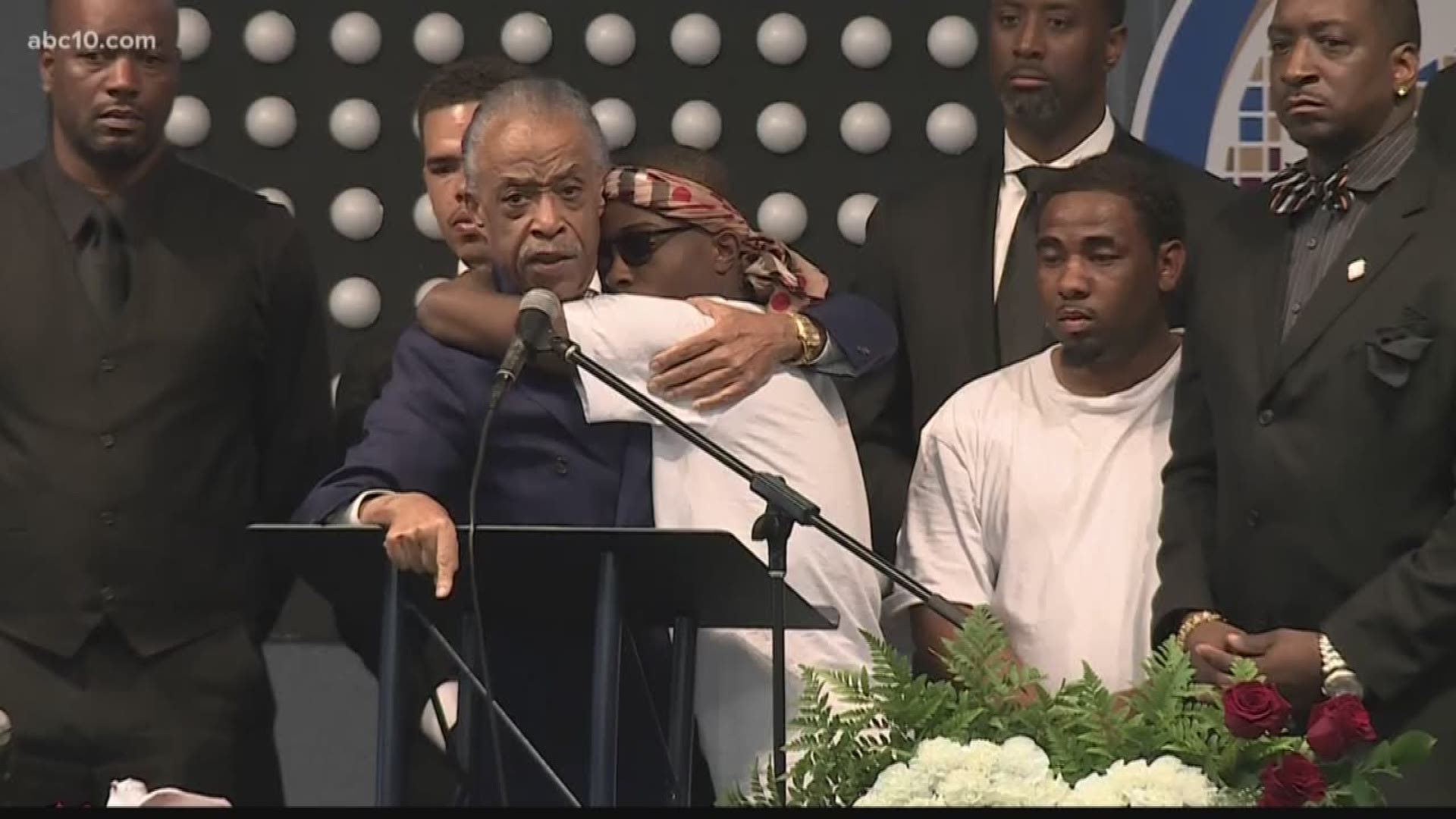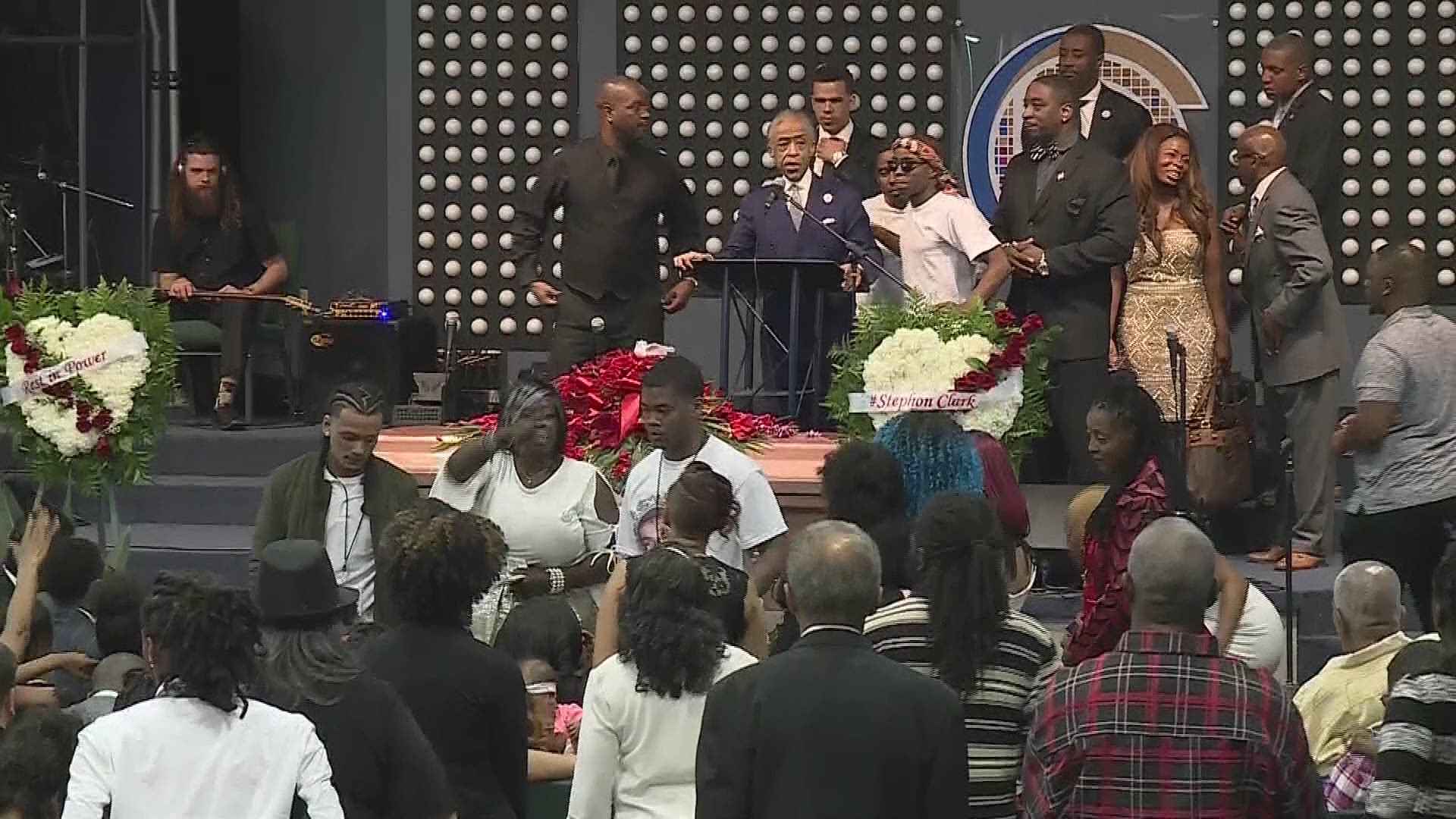Residents and reporters from national and local media outlets were scattered around the entrance of Bayside Boss Church.
People were standing in line to attend the funeral of Stephon Clark, an unarmed 22-year-old shot and killed by Sacramento police.
Quietly, the notable Reverend Al Sharpton stepped out of a black SUV surrounded by staff and security. It took about five steps before a swarm of media circulated him, where he went live on his network, MSNBC, and quickly made his entrance to the church.
Sharpton was tasked with doing Stephon Clark's eulogy.
The attention and limited access to this iconic figure by the media evidenced the Sharpton Effect, when he's on the ground everybody hears the story. ABC10's Lilia Luciano saw it happen in 2012 after the death of Trayvon Martin and again Thursday.
When asked about his effect on the story, he said, "I hope that they know there's national concern since the White House said it's a local issue, that there are people nationally concerned and will support the family."
During his speech, he also compared President Barack Obama's responses to the death of Trayvon Martin and other shootings of unarmed black men with President Donald Trump's lack of reaction.
California Attorney General Xavier Becerra said this week his department will oversee the investigation into Clark's death. Locally, Mayor Darrell Steinberg and Sacramento Police Chief Daniel Hahn have consistently faced the public and made efforts for transparency, although accountability is still unknown.
When asked if getting the Attorney General Jeff Sessions or the Trump Administration involved would make matters worse, he replied that he didn't say anything about Sessions, but criticized the White House's statement about this being a local story.
Earlier this week, Felicia Allen, one of the first black women officers in Sacramento PD tsaid she did not understand why Rev. Sharpton was coming, that Sacramento can handle itself.
Another woman approached him after the service and asked him, "why do you feel the need to be here now, when he was killed a week and a half ago?" He responded that "staff from his organization, The National Action Network have been here since last Sunday."
He consistently made it clear that he is here in Sacramento for the family and to keep the eyes of the nation on Stephon Clark.
While several people outside thanked him for being in Sacramento, others said they had mixed feelings. Some criticized he's here to build his own legacy and keep the eyes of the nation on himself. Reginal Castex, after the service said, "He put an important stamp on what was going in today. Would you rather have three men going to war with you? Or 10 men? We had the three men, he just brought the rest?"
During the service, Rev. Sharpton embraced Stevante Clark, Stephon's brother who has been expressing his mourning in captivating ways.
"You do not tell people how to grieve," said Sharpton.
During the eulogy, he said to the media "I flew 3,000 miles not for you, but for them [family]." He also said it was Stephon Clark's grandmother who called him to come.
In a recent New York Times profile on Rev. Sharpton, Benjamin Crump, attorney to the family of Stephon Clark who was standing beside Sharpton, told the reporter, "A lot of people don't take the calls until it's popular," and that "Reverend takes the calls."
In that same piece, Rev. Sharpton said people call him an ambulance-chaser, but expressed "I'm the ambulance. They knew that I would come."
He often speaks about the importance of the media and about Dr. Martin Luther King Jr.'s understanding of it. Today some embraced him with gratitude, others called him a race-baiter behind his back, but change demands pressure, organizing and attention.
This was a testament to the role he still plays in the fight for justice for African American communities and the mastery he has of all of the above.


